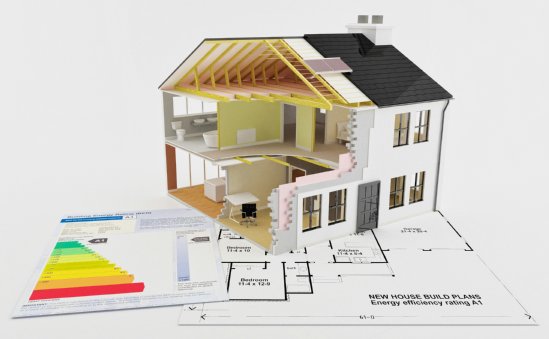Call for urgent action on zero carbon homes
Written by Mark Sait
Posted on March 22, 2016
MPs have called on the Government to bring back the zero carbon homes policy as leading academic research highlights serious issues.

The Energy and Climate Change Committee makes the demand in a report just published and the need for radical action is underlined by research from the University of Westminster and the University of Hertfordshire.
Both reports clearly show the serious dislocations caused by the Government’s decision last July to scrap the widely-supported Zero Carbon Homes initiative, which had set a goal to ensure that all new homes were zero carbon by the end of this year.
The committee report, ‘Home energy efficiency and demand reduction’, says that inconsistent and unpredictable policy signals have affected the energy efficiency supply chain, not least the scrapping zero carbon homes initiative.
Energy bills
The report says: “The zero carbon homes policy would have saved future homeowners money on their energy bills. It should either be reinstated or the Government should set out a similar policy that will ensure that new homes generate no net carbon emissions and are inexpensive to heat and light.”
The committee points out, as we have done, that there is now no support for householders who want to install energy efficiency solutions but do not have access to funds to do so.
MPs on the committee say that the Department of Energy and Climate Change (DECC) should re-stimulate the “able to pay” market while promoting the broad benefits of energy efficiency.
DECC should also understand more clearly the needs of different households, while also encouraging a locally-led approach to energy saving.
National policy
The committee strongly urges making energy efficiency a national infrastructure priority, to concentrate the focus, creating “sustainable and durable long-term policy view that goes beyond parliamentary cycles”.
These calls echo what we have been arguing for over a long period – simple, effective energy-saving and water-saving solutions backed by national policy and funding mechanisms.
The move to new zero carbon homes is much needed while all households need a helping hand to maximise their energy savings, through LED lighting and better water management, which cuts energy consumed in heating and pumping.
Eco showers, eco taps and tap aerators all provide ongoing savings in water and energy.
The committee also has “serious concerns” about the Government’s proposed approach to tackling fuel poverty through energy suppliers.
It argues: “The importance of saving people from fuel poverty cannot be overstated but we heard that the Government’s decision to use the new supplier obligation to do so may be misguided and that we are the only country in Europe to take this approach.”
Extra incentives
Angus MacNeil, Chair of the Energy and Climate Change Committee says:
“We need to ensure all new houses are super insulated and fit for the future by reintroducing a zero carbon homes policy, especially as many building companies are prepared to deliver it but it is the improvements we make to Britain’s existing housing stock that will make the most difference. Because many of our homes were built before the Second World War, Britain has some of the most inefficient and heat-leaking housing in the world.”
“Extra incentives need to be considered as the government’s previous pay-as-you-save efficiency scheme – the Green Deal – failed to entice enough people to insulate their homes. Stamp duty and council tax discounts could encourage more households to make energy efficiency improvements. The government must push ahead with driving demand for energy efficiency but the impact of introducing these sorts of incentives must first be properly assessed.”
Targets under threat
Meanwhile, the detailed report from the two universities, funded by the Royal Institution of Chartered Surveyors, advises that the ability to meet EU targets on low and zero carbon homes is under threat after scrapping the initiative.
The report evaluates policy and standards for promoting the delivery of low and zero carbon homes in England in the context of the 2012 Housing Standards Review and the withdrawal of the zero carbon target.
The report, ‘The future of policy and standards for low and zero carbon homes’, says that the research indicates wide support across the sector for national Building Regulations being the main policy driver for achieving low and zero-carbon homes, “especially given that consumer drivers for higher energy standards are weak.”
It says:
“However, opinion is far more divided about what many view as the recent ‘watering down’ of energy-related regulations for new homes. Many view the Coalition policy, which led up to the later abandonment of the 2016 zero carbon target, as having overlooked the key role for stronger regulations as drivers of innovation.”
Policy recommendations
The report makes a number of policy recommendations, including:
- The need for Government to support the construction and housebuilding sectors in addressing the profound challenge of developing skills and working practices required to translate policy targets into practice. This should be implemented through initiatives and partnerships with industry, such as the Zero Carbon Hub.
- The need for industry standards to encourage greater engagement with sustainability issues from the home buying public.
Dr Dan Greenwood, report lead researcher from the University of Westminster expressed concerns over the low priority of zero carbon homes on the policy agenda.
Dr Greenwood says:
“The task of establishing effective policies and standards for new homes is one that the Government and industry have both been wrestling with for ten years as part of the broader challenge of the UK and EU CO2 emissions reduction targets.
“As our report shows, whilst there has clearly been a need for streamlining policy and standards, this is not the same as the deregulation agenda we have seen from the Government. A smart approach to defining policies needs to include promoting skills development, learning and innovation across the housebuilding sector.”